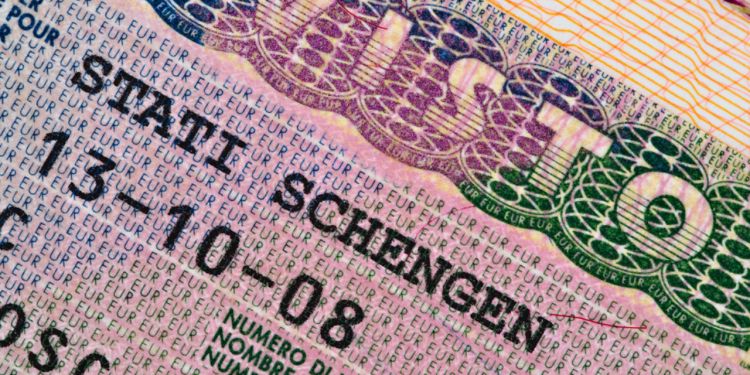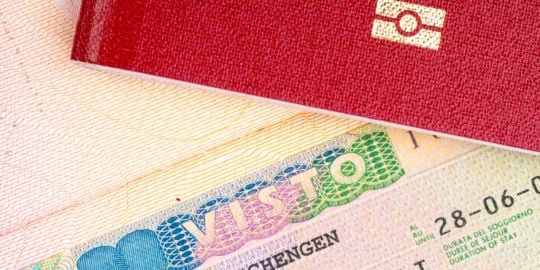Short-term visa for Italy

If you've decided to relocate to Italy for 90 days or less, you will need to determine whether or not you need to apply for a short-term visa (Schengen Uniform Visa). This will depend on a number of factors, including what citizenship you hold, your current country of residence, and your reasons for staying in Italy. It's important to determine which visa you need before you move.
If you plan to stay in Italy for longer than 90 days, you can read our helpful guide on how to apply for a long-term visa (National Visa).
Good to know:
Limited Territorial Validity Visas are only issued to people seeking to stay in Italy due to humanitarian reasons, national interest, or under certain international obligations. These are issued by the citizen's country diplomatic or consular representative.
Visa exemptions in Italy
Should you wish to stay in Italy for less than 90 days, you may be exempt from requiring a visa.
Visitors who do not require a visa include:
- EU, EEA, and Swiss citizens.
- Citizens of countries covered by the Visa Waiver Agreement. These include Albania, Andorra, Antigua and Bermuda, Argentina, Australia, Bahamas, Barbados, Bosnia and Herzegovina, Brazil, Brunei, Canada, Chile, Colombia, Costa Rica, Dominica, East Timor, Grenada, Guatemala, Honduras, Israel, Japan, Macedonia, Malaysia, Mauritius, Mexico, Moldova, Monaco, Montenegro, Nauru, New Zealand, Nicaragua, Panama, Paraguay, Peru, Saint Kitts and Nevis, Salvador, Samoa, Saint Lucia, Saint Vincent and the Grenadines, San Marino, Serbia, Samoa, Saint Lucia, Saint Vincent and the Grenadines, San Marino, Serbia, Seychelles, Singapore, South Korea, Taiwan, Tonga, Trinidad and Tobago, United Arab Emirates, United States of America, Uruguay, Vanuatu, Vatican and Venezuela.
Important:
All citizens wishing to stay in Italy will still require a valid national ID or passport which expires no less than three months after the intended date of departure from Italy.
If you are unsure whether your country of citizenship is covered by the Visa Waiver Agreement, you can use the Italian Ministry of Foreign Affairs website to search for your specific scenario. Countries not covered by the Visa Waiver Agreement are also listed on the Schengen Visa Info website.
All other citizens must apply for a Schengen Uniform Visa to enter Italy.
In order to obtain your visa, it is recommended that you visit the Italian Embassy or Consulate in your home country. Generally, you will need to provide:
- Entry Visa Application Form
- Passport size photographs
- Valid passport/National ID with an expiry date at least three months after the departure from Italy date
- Return ticket/booking
- Proof of subsistence as required here
- Supporting documentation on professional/health status
- Health insurance (minimum 30,000 euros for emergency hospitalisation)
- Proof of accommodation
If you are a student from outside the EU, you will need to obtain a student visa, regardless of how long you are staying in the country.
Good to know:
You can apply for a visa up to three months before your planned trip. Depending on your nationality, processing time can take between two and ten working days from the date of application.
Useful links:
Ministry of Foreign Affairs of Italy
EU Immigration Portal
Schengen Visa Portal









